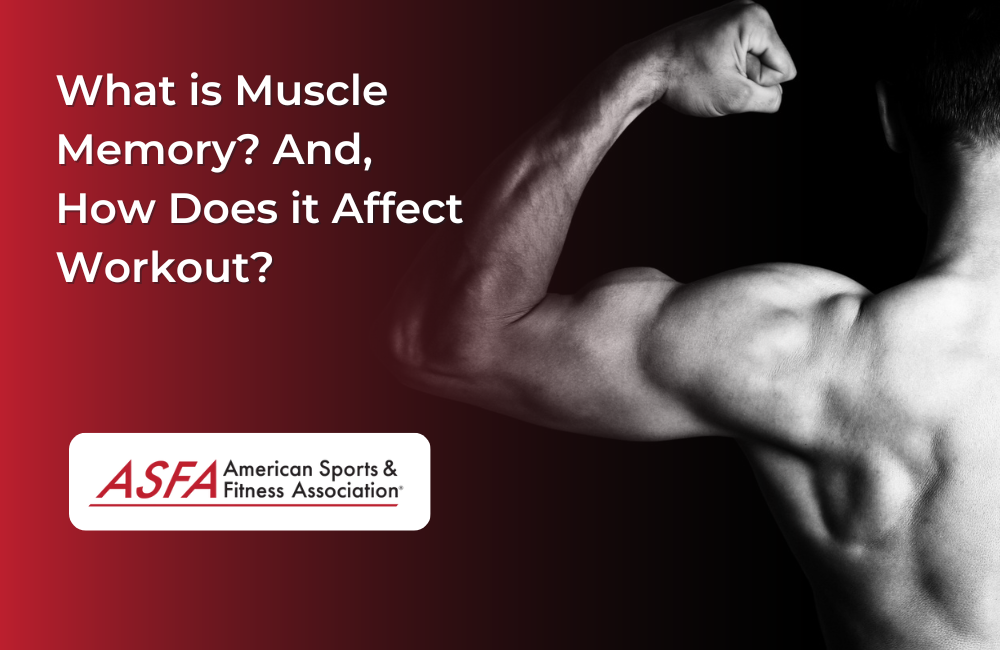
What is Muscle Memory? And, How Does it Affect Workout?
So what is muscle memory? Is it real or just a myth? The answer may surprise you. In this article, we'll discuss what muscle memory is and why people believe it exists. We'll also explain why studies say there's no such thing as muscle memory. Finally, we'll discuss what actually happens when you train for an activity: namely, that your body adapts itself very fast after certain types of training.
Muscle memory is a term that can be used to describe when you learn how to do something.
Muscle memory is a term that can be used to describe when you learn how to do something. It is different from learning, as it does not require conscious thought or effort. For example, if you have ever learned to ride a bike or play the piano, your body has developed muscle memory for those activities. The same thing happens when someone learns how to play sports like tennis or golf; they will develop muscle memory through repetition until they perform these tasks automatically without thinking about them consciously anymore.
This type of automatic movement is also called "automatization" because it comes from repeated practice over time--like driving an automobile daily--and requires little conscious effort after initial learning takes place (though this doesn't mean there isn't any).
According to some studies muscle memory does not exist.
According to a some studies muscle memory does not exist. The study was done in 2003 and published in the Journal of Neurophysiology. Researchers concluded that muscle memory does not exist because they could not find any evidence that muscles have memory or learn from previous experiences.
However, many people still believe in muscle memory; this belief may be related to our ability to do things without thinking about them or because we can repeat movements without thinking about them again (like riding a bike).
The main reason for this myth is that the body adapts quickly after a certain type of training.
The main reason for this myth is that the body adapts quickly after a certain type of training. Adaptation is a normal process that happens in the body and is an important part of your health. The body can adapt to anything, even things that are unhealthy for it. For example, if you're exercising regularly but don't change up your routine or diet at all (e.g., eating junk food), then eventually your muscles will become stronger and bigger because they have adapted to handle more physical stressors on them--which means they have less room to grow anymore!
In contrast: If you change up what exercises you do every few weeks (e.g., running one week instead of biking), this forces your body into different muscle groups, which stimulate growth in many ways, including strength gains but also help prevent injury risk due to overuse/repetition injuries like shin splints or tendonitis.
It's not so much a matter of people thinking they've trained their muscles to have increased strength during physical activity.
- It's not so much a matter of people thinking they've trained their muscles to have increased strength during physical activity. Instead, it's about learning how to coordinate with each other during exercise.
- The concept of muscle memory is known as "neural adaptation," which refers to your brain and nervous system adapting themselves for you to perform at higher levels after practicing an activity regularly. For example: If you play tennis often enough, you'll eventually find that your swing becomes more fluid than before because your brain has learned how best to get the ball over the net without making too many errors--it knows what movements go together well so that any mistakes are avoided as much as possible (or at least minimized).
Instead, it's more related to increased endurance, speed, and efficiency.
Muscle memory is not a myth! It's just different from what we think it is.
It's easy to assume that muscle memory is all about strength: once you learn how to do something--like lifting weights or playing the piano--your muscles will remember those movements forever. But this isn't true; instead, researchers have found that muscle memory is more about coordination than strength (which makes sense). Your limbs have learned how best to work together to perform these tasks efficiently over time--and when you repeat them later on, those patterns become even more ingrained as they become second nature for your body.
This is because these body parts have learned how to coordinate with each other during exercise.
The brain learns to coordinate with the muscles to work together more efficiently. This is why you do not have to think about every single muscle in your body when lifting weights--you just focus on one thing at a time, like lifting an arm or leg up and down. The brain learns how much force each muscle needs to do its job (like keeping your shoulders straight).
This type of memory does not make us stronger because it doesn't actually increase the size of our muscles; instead, it makes them more efficient at doing what they already know how to do: contract in unison with other muscles during exercise.
When you train for an activity, your muscles may not become stronger, but they will become more efficient at completing those movements.
The body adapts itself very fast after a certain type of training. It's not so much a matter of people thinking they've trained their muscles to increase strength during physical activity; it's more about utilizing the strength that you already have more efficiently.
For example: Let's say that you're learning how to play basketball and want to improve your dribbling skills by practicing dribbling with one hand instead of two hands (called "single-handed dribbling"). Your coach might tell you that this is a good way to improve your ball-handling skills because it allows players who are right-handed or left-handed (or both) equally well-suited opportunities when trying different ways of handling the ball while moving around on the court during games or practices.
Conclusion
If you're looking for a way to improve your fitness level, many different activities can help. You don't need to spend hours in the gym or run laps around the block--you can even get an effective workout from playing with your kids or doing chores around the house. And while muscle memory may not be real according to science, it certainly feels like something when we're out there sweating it out!




